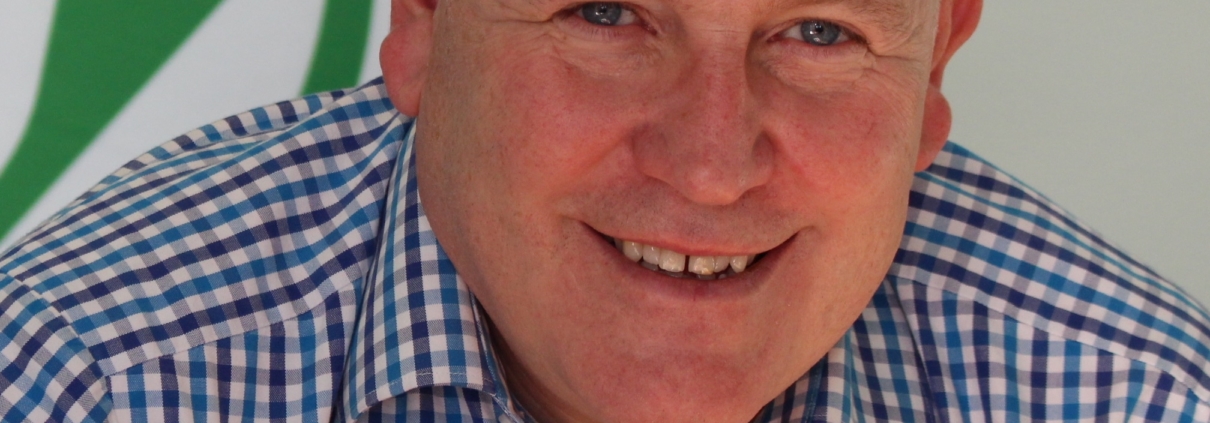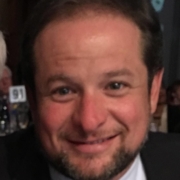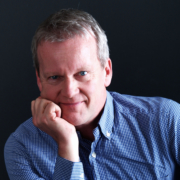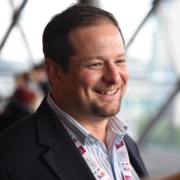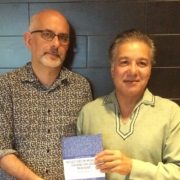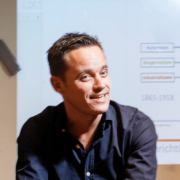How does change happen? What role do unions play in creating decent quality lives for its members? When is more militant action needed?
These questions are asked by all unions. So, in our quest to explore education unions in more depth, I want to explore how transport unions answer these questions. In many ways, the struggles facing teacher unions worldwide are similar to those facing the transport sector.
My guest today is Stephen Cotton, the general secretary of the International Transport Workers’ Federation. The ITF is composed of 677 national trade unions and represents over 19 million workers in 149 countries. It represents the seafaring, ports, roads, rail, tourism and aviation sectors. In our conversation, Stephen shares his history in trade unionism and reflects on the process of making change. He also talks about the climate crisis as one of the biggest issues facing unions today.
Citation: Cotton, Stephen, interview with Will Brehm, FreshEd, 168, podcast audio, August 19, 2019. https://www.freshedpodcast.com/stephencotton/
Transcript, Translation, Resources:
Will Brehm 1:34
Stephen Cotton, welcome to FreshEd.
Stephen Cotton 1:36
Pleasure to be here.
Will Brehm 1:37
So, can you take me back to when you first joined a union?
Stephen Cotton 1:42
Okay, so my story’s a little bit different in the sense that -and I kind of joked yesterday at the Education International Congress that education wasn’t my primary -I left school at 15 and I wasn’t particularly well-educated and that’s mostly because I didn’t take the opportunities that the education system in the UK gave me. So, I had to go off to work pretty early and I had quite a few pretty poor jobs.
Will Brehm 2:08
Such as?
Stephen Cotton 2:09
So, I was a messenger. And then I worked in an administration team in a law firm, and kind of worked out that I wasn’t going to get very far unless I did some more education. So, I had to do night school to get myself up to -it was “O levels” in those days, today it’s GCSEs- and I had to do night school to get better qualifications then I ended up working in a law firm in the litigation department. And there, I started to do kind of what they call “court work”. So, you do sort of interlocutory hearings, and you try and fix dates for those in the High Court in London. And then I suppose in the sort of lucky kind of break, opportunity or reflection that that firm asked me to go to Singapore when I was 20 for a month on a big construction arbitration case. And luckily enough, I did a good job of that. And then when I came back, I had my 21st birthday it was quite something. And then when I came back, they said we want you to come into the litigation department. And then I started to work with this kind of what I thought was a really interesting organization, the International Transport Workers Federation. The way they asked me to do some first case was they asked me to go back into files and review, we have a flag of convenience campaign, which is a campaign against abuse of seafarers on ships. And we’ve been running that campaign for 50 years, and we’ve collected some money for quite a lot of seafarers. And in those days, the seafarers, so I’m talking early 90s. So, we were going back even 10-15 years. And the seafarers that we collected money for were Taiwanese, Koreans, Filipinos still, and we had money that we had to pay out. So, part of my thing was to produce, could we find these seafarers, could we pay the money we collected for them on a global movement for their abuse in their positions and their jobs, and we paid out millions of dollars.
Will Brehm 4:16
You had to find them?
Stephen Cotton 4:17
Well, when we took cases they were on a ship. So, they were on a ship someone takes an action, you get a crew list, they signed things but then in those days, if you gave them money back, the ship owner would then just take the money off them because they were on the ship and so you had to wait till they went home, and you missed the process wasn’t followed up. So, we had money on account with names of the crossroads, we had processors in Taiwan and Philippines, in Korea, finding people because we had a responsibility to pay the money out. And we managed to do a real good job at it. And I kind of fell in love with this organization because I saw it a bit like I was born in London and wasn’t from a union family. So, it was like, “Oh, my God, this is was what unions do!”. It was amazing. And it was really like it was for defending global South people that were disadvantaged in an economic situation. So then in 1993, so that was ’91 to ’93, the new General Secretary came in David Cockroft and I said, would there be a job if I came and joined. By this time, I was not a qualified lawyer. I was on the route to do some of that stuff in night school studying law. So that’s kind of my connection to education.
Will Brehm 5:30
So, you’re 15 years old, you drop out of school, you end up doing all these different jobs here in there. And you end up in a law firm working on paying out seafarers all over the world. And you get in touch basically with the ITF. And that is your…
Stephen Cotton 5:47
That’s the beginning to my trade union.
Will Brehm 5:50
And you’re taking night school here to become a lawyer.
Stephen Cotton 5:52
Yeah, yeah.
Will Brehm 5:53
Oh, my gosh, some trajectory!
Stephen Cotton 5:57
Well, also, I mean, imagine you join to international trade union secretariat without any background. So, it’s been a bit of a struggle to win over first of all other people to prove your credentials.
Will Brehm 6:10
So, how did you do that? How did you show that you were a real trade unionist?
Stephen Cotton 6:13
Well, I think the reality is, on some levels, you try to look at what other solutions to the problems. So, in that capacity, I’ve had what was the head of agreement unit assistant secretary to what we call the special seafarers department, which was the role for delivering the flag of convenience campaign. Then I became the maritime coordinator, which oversaw seafarers, dockers and All That?] campaign and then I became acting general secretary and then general secretary.
Will Brehm 6:42
Wow, I see. And was that a quick rise?
Stephen Cotton 6:45
No, that was from 1993 to 2013, so twenty years.
Will Brehm 6:51
So, 20 years, and you were sort of building up.
Stephen Cotton 6:53
Pretty much every job?
Will Brehm 6:57
That’s a good way to get your credentials.
Stephen Cotton 6:59
Yeah. Transport unions are quite tough. And the world of transport is becoming more tough. The global supply chain, the “just-in-time” model. And we have a history of being quite militant. And I think it was not proving your militant, but it was proving that we’re smart and understanding the changing. So, after 20 years, you imagine we’ve seen challenge on the numbers of unions, we’ve seen challenge to boycott action, we’ve seen challenge on voting and percentages and how to get representation all of these things. And throughout that I’ve managed to stay extremely close to the national unions. So, like to me the global union federations belong to their national unions. Yes, we have enormous privilege and responsibility or privilege. And along with that comes responsibility to have a vision about what the labor movement looks like, as we face the future of work and the challenges you really want to discuss. But the reality is, each and every time, we might not have known we were taking big steps to the future. But actually, if you reflect on it, things have changed quite a lot. And it’s kind of like, ‘How do you stay relevant?’, ‘how do you make sure you’re educated on what’s happening on the other side of the table’ -or which I think is more pertinent today- it used to be the counterpart that you bargain with. Today, it’s an ideological position and this is where I think it comes back to the educators -it’s like, there’s a trend NOT to invest in the future and in people. So, there’s a disinvestment in teachers, or lecturers, or educators. In transport, they want it just to be the cheapest movement of a container per mile. And that means –
Will Brehm 8:44
-That’s the metric.
Stephen Cotton 8:45
Yeah, irrispective of how it affects how many people you impact on and their consequence, just drive the cost down. So, our challenge in both educators and transporters is how do we push the dimension back? How do we make transport more expensive so that there we can distribute better salaries and more than security and stability along the line? And it’s the same conversation in a different way for educators? The reality is, how do we make sure that society values them? And how do we invest in them in a way that instead of demeaning them and attacking pensions and social benefits that they’ve spent tens of years fighting for -because you’re not going to get super, super rich in those jobs. You’re giving to society in a different way. That should be respected, don’t get me going. But the point is, it’s absolutely critical that the workers, better educated workers, or uneducated workers who want to be educated, should be respected for their contribution and not be valued into a metric value of x. So, that’s the challenge for all of us, I think.
Will Brehm 9:47
So, in this, you know, in your 29 years of experiencing in the ITF and all these different positions: how does this secretariat navigate making change through more militant action versus more sort of solidarity campaigns, or perhaps less militant actions? Like, because you were saying me the ITF, or at least those national coalitions who are a bit more militant than, say, education unions. So, how do you balance this when it comes to making change?
Stephen Cotton 10:22
I think we shouldn’t lose the militancy. We saw it recently with the attack of the International Labor Organization, the right to strike. And again, we didn’t really react strong enough because, you know, it’s a human right to withdraw your labor. And make no mistake about that, right. And even though the future of work, and all these new gadgets and apps and all these issues, actually, they’re just the front end, for selling our labor price. So, for me, I think you need the militancy, which means you do need education, you do need to respect the history of where we come from, the history about why people collectively come together. It isn’t just about wages. It’s been about health and safety, it’s about protecting lives, it’s about making a contribution to society and that’s where there is a correlation between all the global union federations whichever sector they represent, and EI, and their objective. In fact, there’s actually a reliance on EI as the educators of the world to help us to be fit for purpose for the next round of challenges. So, for me, I think you need to keep the militancy but you also need to pick your fights. I think there’s a key issue here about we’ve challenged our organization quite aggressively over the last -Paddy Crumlin is our president, who’s Australian from the Maritime Union of Australia, he wanted us to be a more campaign oriented organization, which means in some ways, you have to change the dynamics of your committee orientation, of some of your team members, because not everyone’s a campaigner, right. You might be the perfect professional at running a political committee. But if tomorrow, we’re all going to work at how we’re going to seize back power, you know the other reality is you need a different set of skills. So, that’s been part of our challenge about how do we identify what and whom we should target and sometimes you get a bit lucky and sometimes not. But you have to be honest enough to go that worked and that didn’t work.
Will Brehm 12:09
So, when did it work?
Stephen Cotton 12:10
Well, I think for us, it’s a little bit like, in the transportation, we have built -so, in that period of time, we managed that we’ve got the only global union federation, direct collective bargaining agreement for seafarers. So, we built what’s called the International Bargaining Forum. And that was, in a way trading some of our ability to take individual action against some shipowners by working with them as a coalition and then setting a global salary for seafarers. So that was a little bit like trading: We’ll give you some more industrial peace but you will have to come to the table, and you have to bring all your ships with you and you have to make sure that you treat Filipino, Russian, Ukrainian, Indian, whichever nationality you employ through our unions, of course, because there are our members through the affiliation of a national union. So that’s how we were able to say, right, and that’s given us that’s now 20 years, it’s been going. It started in ’98, and there is one forum in 2002. So, we’re 17 years in the full package. And that was a way of actually reconfiguring and actually producing a more stable environment for both the employers and the workers. So, I think you can look at it in a different way now. And we see transport it’s always at the cutting edge of change and we see challenges too many of our different bits of the supply chain: dockers, and automation, changing the way we check on planes and all this stuff. You need to be able to have the conversation, but you also need to be able to win over the people. So, for me, I think the fundamental is about running a good national union and how they fit into the international are as critical today as they’ve ever been. You have to understand your values, and you have to understand what you’re trying to achieve. Picking soft targets, if you’re doing transition is also part of the methodology because we all need to win, right? We can’t make a massive change. And we want to pull down Mountain Everest in day one. It’s not going to work. You’ve got to go to build the capacity, learn the methodology, upgrade your skills, or education issues, as far as I’m concerned, whether it be for unions, or for people as a whole, and then you deliver that model, you test yourself, you have to be critical, but you also have to be transparent about critical. And sometimes that’s a challenge for unions about how transparent we can be when we say well we have to win this. It’s not about the press release, it’s about delivering the outcome. And it’s about which whether we took corners at high speed, and we wobbled a bit on the way around or whether we dropped a gear and went more steady because you need to change your strategy for different matter. So, I think for all of us, it’s that conversation about picking a target that means something to your membership. Now, that’s kind of difficult when you got a global membership, because they have diverse issues and same for education. And we’ve got huge transport sections. But you need to show the industry that we’ve got the power and authority to make change. I said yesterday, and I believe it wholeheartedly, we’re working on building our membership, which is helping national unions grow, not ITF grow, it’s national unions grow, campaigning, and that does mean in some cases, signing up individuals. I’m here in Thailand, and we’ve got two projects in airports and the metro. And we’re building either in improving the unions we’ve got or building new unions for those sectors. But ultimately, in the end, we do need to employ a supply and policy and we need to compete. And that’s where I think perhaps there’s more correlation between us and the educators when it comes to engaging the ILO and then issues of global policies, really difficult issues, like climate change, or climate management, you know, transport’s kind of one of the big polluters. And also, there’s competition about who’s a more efficient mode of transport. And it’s a difficult conversation for us to have.
Will Brehm 15:45
So, how do you do it? I mean, because you look at the news, and every Friday now, there are student protests around the world. All protesting against the climate crisis, we’re not even calling it climate change anymore, it’s the climate crisis. Its climate apartheid. You know, these are serious issues that young people face. So, being in transportation unions, what’s the conversation happening? Because as you said, transportation is a huge polluter.
Stephen Cotton 16:10
So, I think, again, this is politically difficult.
Will Brehm 16:13
Yeah, of course.
Stephen Cotton 16:14
But let’s talk about it because we can’t be transparent and accountable if we don’t have those conversations. So, up until now, we were able to secure internally a position on urban transport. So, there’s sort of ILO, World Bank research that says by 2050 70% of the world will live in a city. So, we’ve been able to work with some really good people, Alana Dave is leading our public transport campaign where we’ve got a climate change position, and we’re working with the over 40 Cities, which is the mayors that are trying to change their own cities, its’s now over 80 big cities -and we’re working with them on what does transport look like in those environments. So, that was okay but it’s not enough because we have the International Maritime Organization has made emissions legislation for shipping, which is about capping and reducing emissions, got some political points in there. We’ve also got research that says the aviation industry is going to grow by another 50% and of course, we can’t deny that there’s a big issue there. And they’ve got -so, without getting too heavy into it, because both of those sectors have really implicit policies, and reactions and strategies. We’re bringing it back to our executive board, actually, this October in Montreal, we’re going to say, look, we cannot be a relevant organization to young people if we do not tighten up our policy position on this. And we can’t -Yes, of course, there’s consequences if you’re a coal worker, or an oil worker, and we have oil and gas people on our ships. So, there’s a really direct human -there’s a short, medium, long-term position on this- but we have to be able to respond to the dynamics of society. And I think this is what the EI Congress is celebrating more. Why I was pleased to get the opportunity to speak is because, we have to have answers for these big issues. And yes, they’re going to be difficult to debate internally but they have to be debated, otherwise, we will not be relevant. And that’s the critical point. And if you really believe that unions are part of the democratic pillar of society, which I wholeheartedly do, then we have to take these difficult questions. I was elected in 2014 and, you know, I explained my history, and now we’re talking about a future of work where probably the most difficult issue working men and women have faced for 100 years. And we’re supposed to have all the answers.
Will Brehm 18:35
And for me, there’s sort of a paradox here, where one of the solutions to the climate crisis is certainly a sort of a de-growth model of the economy where people consume less. But if we’re consuming less, I would imagine we’re traveling less, we’re shipping with fewer and goods, which would have a direct effect on the number of workers that have sustainable livelihoods through the union, right? So, there’s sort of this paradox that I would imagine is unbelievably difficult to bridge or find some sort of common ground here.
Stephen Cotton 19:10
I was giving a previous interview, I think this question of policy and governance policy, is perhaps the missing element, being a massive political movement about who’s more powerful than anybody else. And just to be clear, I’m talking about America, Russia, and China. And the ITF has relationships in all of those places with working men and women, or not quite membership in China. And there’s a lot of posturing. But it doesn’t seem to be an awful lot of thinking about what the hell we’re going to do about the displaced people, the future of work can bring an effective response to the climate challenges. And you need some clever people, going back to the value of educators: clever people don’t just arrive, they get nurtured and they get brought along, and they get educated, and they get further educated, and I anticipate for the future of work, we’re all going to end up in more and more education to remain valid for the future. And it’s kind of critical that we made some policy development on this, because, you know, we’ve looked at the global minimum wage and the distribution, but it’s a massive flaws in the business model -kind of which is what started this conversation about because if the objective is not to pay tax, how the hell are we going to build a society that looks after those people that are either unable to re-educate themselves in a changing world, or either unemployable, if all the jobs change to a higher technical specification, we still have to have a society and I think we came right back to the fundamental principle, what’s the union? What’s our values? And our values is to shape society. Yes, it takes the form of collective bargaining. But also, I think, probably now more than ever policy development. And that’s where the cooperation between the global union federations and the cooperation with the ITUC is absolutely critical because we need to stretch our minds about what should be the policy developments and how do we respond.
Will Brehm 21:07
Well, Stephen Cotton, thank you so much for joining FreshEd, it really was a pleasure of talking today.
Stephen Cotton 21:12
Thank you very much. Thanks for the opportunity.
Learning from transport trade unions

